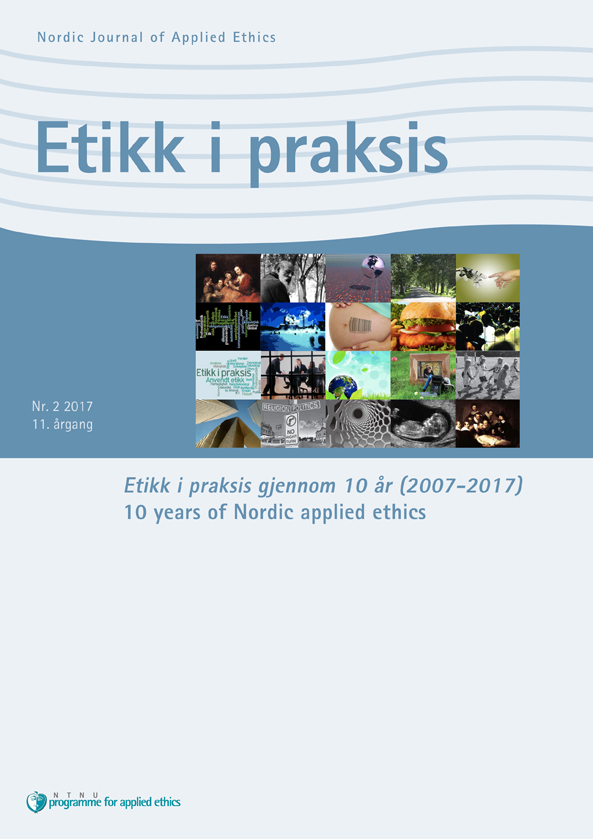Hvilke moralske utfordringer opplever norske politistudenter i praksisåret?
DOI:
https://doi.org/10.5324/eip.v11i2.1986Nyckelord:
ethics, professional ethics, applied ethics, policing, educationAbstract
I denne studien undersøkes hvilke moralske utfordringer norske politistudenter oftest møter i «praksisåret». Utfordringene identifiseres gjennom en analyse av 208 hjemmeeksamener i yrkesetikk fra avgangsstudentene ved Politihøgskolen i Oslo, hvor utfordringene beskrives gjennom kombinasjoner av hvilke verdier som står sentralt, hvilke personer som er involvert og hvilke typer oppdragene oppstår i. Funnene eksemplifiseres og settes i forhold til sentrale politivitenskapelige diskusjoner. Til slutt diskuteres hvordan studentene best kan forberedes på disse utfordringene.Nøkkelord: etikk, yrkesetikk, anvendt etikk, politi, utdanning
English summary: What moral challenges are Norwegian police students encountering during their practice period?
This article examines what moral challenges Norwegian police students encounter during their practice period. The challenges are identified through an analysis of the experiences described in the professional ethics home exams of 208 graduates at the Norwegian Police University College in Oslo. From our analysis, paradigmatic challenges are constructed based on the combinations of values, persons and mission types typically highlighted in the exams. These challenges are then discussed in light of central topics in police science. Finally, we discuss briefly how police students can be best prepared for meeting these moral challenges.
Nedladdningar
Nedladdningsdata är inte tillgängliga än.
##submission.downloads##
Publicerad
2017-11-14
Referera så här
Paulsen, J. E., & Enoksen, L. M. (2017). Hvilke moralske utfordringer opplever norske politistudenter i praksisåret?. Etikk I Praksis - Nordic Journal of Applied Ethics, 11(2), 95-110. https://doi.org/10.5324/eip.v11i2.1986
Nummer
Sektion
Artikler - Articles
Licens
Authors who publish with this journal agree to the following terms:
Authors retain copyright and grant the journal right of first publication with the work simultaneously licensed under a Creative Commons Attribution License that allows others to share the work with an acknowledgement of the work's authorship and initial publication in this journal.
Authors are able to enter into separate, additional contractual arrangements for the non-exclusive distribution of the journal's published version of the work (e.g., post it to an institutional repository or publish it in a book), with an acknowledgement of its initial publication in this journal.
Authors are permitted and encouraged to post their work online (e.g., in institutional repositories or on their website) prior to and during the submission process, as it can lead to productive exchanges, as well as earlier and greater citation of published work (See The Effect of Open Access).


